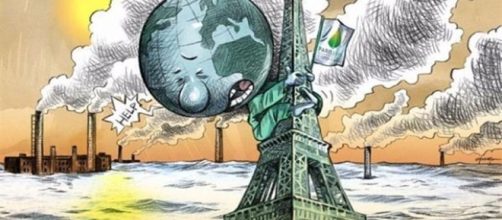It's official, the Paris climate change agreement is a "bad deal" for the United States, said the administrator of the U.S. Environmental Protection Agency (EPA), Scott Pruitt. Pruitt went on to say that the U.S. should continue to discuss global warming activity but that is all. The head of the EPA announced Sunday that he was uncertain if America would remain in the global pact.
The international pact is an agreement with the United Nations Framework Convention on Climate Change (UNFCCC) that addresses greenhouse emissions. One hundred and ninety-five countries worked on the negotiations for the 2020 UNFCCC in Paris, France.
The agreement went into effect on November 4, 2016. Laurent Fabius, France's foreign minister and head of the Paris Conference, said that the signing of the agreement was a “historic turning point” in trying to reduce global warming.
Trying to reduce global warming
President Donald Trump signed an executive order last week, cutting the Clean Power Plan, a major factor in the U.S.' ability to meet its requirements for the Paris agreement. Trump also removed former President Barack Obama's carbon emis policies. Trump did not address any firm commitment to stay or leave the agreement, but Sean Spicer, White House Spokesman, did say that a decision was going to be announced before the G7 summit. White House officials are in the process of getting information from fossil fuel companies about the negative and positive aspects of staying in the Paris agreement.
Is climate change man-made?
EPA head, Pruitt, said that China and India signed the agreement but were not required to reduce emissions. Each country, under the agreement, offers a nation strategy meeting its own reduction of gas emission goals. When asked to clear up the statement made last month regarding carbon dioxide emissions not being the primary factor to climate change, Pruitt said human activity was also accountable for climate change. Pruitt wants to find out how much humans are actually contributing to climate change and how much CO2 emissions that causes, along with measuring that quantity.

